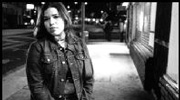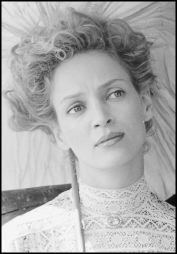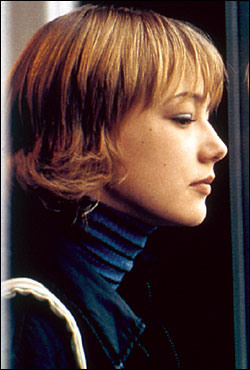REAL WOMEN HAVE CURVES
directed by Patricia Cardoso
opens Nov. 8 at Harvard Exit
REAL WOMEN HAVE CURVES isn’t exactly uncharted territory, as smart 18-year-old Ana battles family and tradition, with college in the balance. Its wild cards are the shadings within newcomer America Ferrera’s glowing lead performance (matched by veteran Lupe Ontiveros as her mother) and the vibrancy that director Patricia Cardoso uncovers in the East Los Angeles streets where Ana lives—and finds herself working.
Cardoso’s vision begins in real Mexican-American neighborhoods. By the time we’ve followed graduating high-school senior Ana to her bus stop, past the 80-some-year-old warbling “O Solo Mio” in her tiny garden, past the vividly painted signs of the fruit and vegetable bodegas, we’re caught.
This energy is nothing compared to the volcanic explosions between Ana and her imperious, demanding mother. No sylph herself, Carmen has always “playfully” called her daughter “butterball” and warned her that men have no use for women who are fat—or smart. Bright enough to get into Beverly Hills High School, Ana has backbone enough to fight back, even to take pride in her curves, which are hardly Rubenesque in any case. She even has an Anglo boyfriend, a touch clueless, but smitten by her for all the right reasons.
Ana’s wonderful older sister Estela (Ingrid Oliu), with less spirit (and schooling) than Ana, has buckled under Carmen’s cruel dismissal of her as unmarriageable. She now runs a small, struggling dress factory, taking pride in the gowns they make for $18—which Bloomingdales sells for $600. Estela’s is where Carmen orders her youngest to work—as she does—even in the face of Ana’s possible scholarship to Columbia.
If Ferrera is uncommonly sensitive, reflecting Ana’s every mercurial mood, the blessedly unshrill screenplay (by George LaVoo and Josefina Lopez, from Lopez’s play) does the same as it rounds out every character, including Estela’s factory workers. Literally sweating over a heavy steam pressing iron, Ana is borderline contemptuous of these women until, as the hot summer wears on, she begins to really listen to the stories of their daily lives.
The movie’s highest comic note comes as Ana, partly as a jab at her prudish mother, partly in personal triumph, strips to her underwear and persuades her sweltering co-workers to join her in a display of what seven-eighths of the world really looks like. Cringe-inducing? Not in a packed audience, where women nearly bring down the house. If Women ends with a faintly fairy-tale twist, it’s no less of one than a certain Greek Wedding‘s, which this film outstrips—so to speak—in every way.









